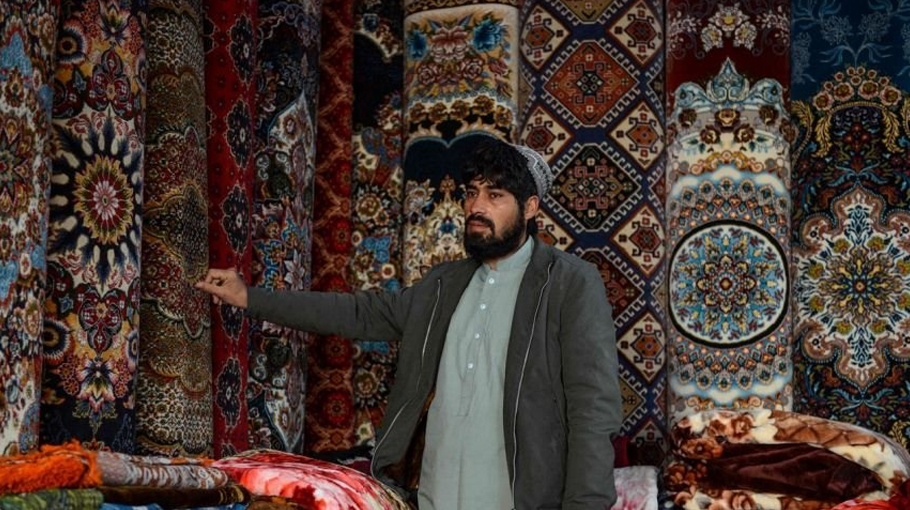Afghan families go back to making carpets as economy unravels

Four Afghan brothers have hauled their family's carpet loom out of storage in the desperate hope of earning a living as the nation's economy teeters on the edge of ruin.
The Haidari brothers now spend their days sitting abreast on a squat bench -- as generations of the family did before them -- weaving the complex rugs for which Afghanistan is famed.
They work long hours each day, keeping a brave face even though there is no guarantee they will have anyone to sell their carpets to.
"We have no other option" to keep the family alive, said Ghulam Sakhi, the 70-year-old family patriarch.
Until August 15, when the Taliban returned to power in Afghanistan, the Haidari brothers had managed to escape the backbreaking labour of carpet making and were running a successful business supplying flowers for weddings.The hardline movement's austere interpretation of Islam, however, largely put paid to the lavish betrothals so loved by Afghans, and the family enterprise collapsed.
In an act of creativity in the face of adversity, they fell back on their family's rug-making trade.
"Naturally when the Taliban took over... wedding halls didn't have much business. That is why we started carpets again," said Rauf, at 28 the eldest of the brothers who all live and work in Kabul.
"It's a very old practice that our forefathers have passed down to us," he told AFP.
Now they pick strands from dangling spindles of silk before looping them into the warp and weft of the rug with precise, rhythmic energy.
And when the 12-metre (39-foot) carpet is complete, they hope it will fetch up to $6,000 dollars (5,300 euros).
- 'National treasures' -
Around two million of Afghanistan's 38 million population work in the carpet sector, according to Noor Mohammad Noori, who heads the national carpet makers' association.
But demand has taken a sharp hit since the Taliban's takeover sparked an exodus of expatriates working for international organisations, he says.
Afghan rugs -- from intricately woven silk Persians to the simpler woollen tribal kilims -- are sought after around the world.
But in the past few months, "more and more people are making carpets" says Kabir Rauf, a merchant in Kabul who describes his wares as "the national treasures of Afghanistan".
Read more: Afganistan face WI challenge
New among the carpet-weaving workforce are women who cannot go to work, girls shut out of school, and unemployed men, he said.
In Herat, near the Iranian border, Haji Abdul Qader already employs around 150 families for his carpet-making business.
But every day, two or three more people contact him, desperate for work. Even those with no experience get in touch.
"There are no other jobs," Rauf Haidari said.




